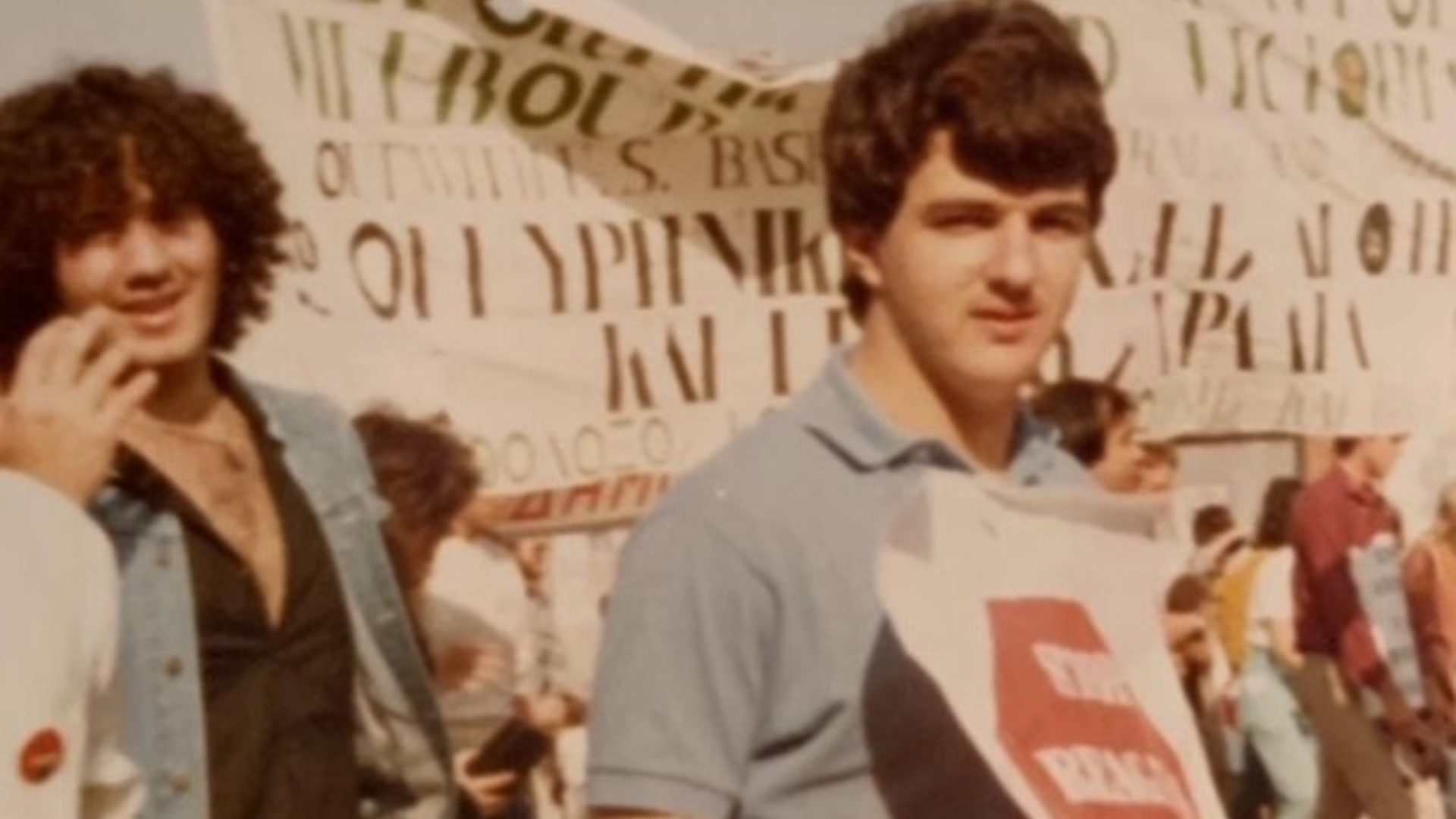By Theo Markos (Melbourne University Greek Club, 1981-88)
I would publicly like to thank the committee of the Melbourne University Greek Association for providing me with the opportunity to say a few words about my personal involvement with the association during the 1980s at the MUnGA History and Networking night that was held at the Greek Centre on September 11 this year.
It was a privilege to partake in an event that included the original founders of the association; people like John Petrakis and Theo Hatzis as well as Helen Hatzis, key players and activists during the late 60s and early 70s. I was amazed by the energy and commitment displayed by these individuals during the early days of the association, as well as the wide variety and diverse activities they were involved in during those foundation years. Certainly, they were a hard act to follow.
It was also a pleasure to meet up once again with the younger brigade of the association, former students such as Jonathan Angelopoulos, Kristian Raspa, Yianni Kallianis, just to name a few, all of whom played a significant role in reinvigorating the association during its more recent years.
I must also thank and acknowledge the hard work and dedication shown by the current Board and especially Secretary John Tzalepis and President Christina Savopoulos who made this event possible. It was their enthusiasm and passion that contributed to the event’s success.
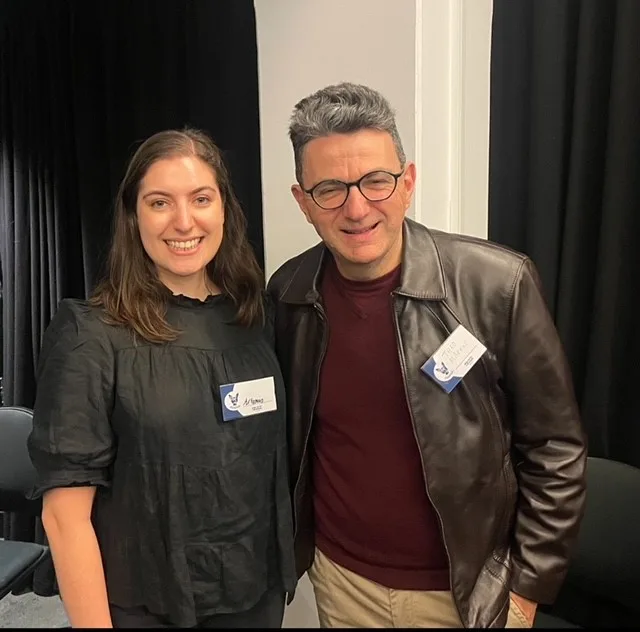
Personally, for me it was a trip down memory lane, a reminder of the significant input the association had in the lives of many students during the 1980s. The number and variety of functions offered by the club during that decade was incredible; a period of non-stop activity and participation during which the formation of long-lasting friendships were established.
Funnily enough, my first contact with Melbourne University Greek students was related to a “cause” which still remains close to my heart, the maintenance and promotion of the teaching of the Greek language within our education system.
It was in 1980, as a year 12 student studying HSC Greek (today’s VCE), at the Academy of Modern Greek on Collins Street, that I first connected with university activism. It was the year that the subject of Modern Greek was under threat at a number of university campuses.
Students from various tertiary campuses then decided to take matters in their own hands and organised a “hunger strike” to object to the cuts being proposed. The strike took place at what was then called the City Square located at the corner of Collins and Swanson Street.
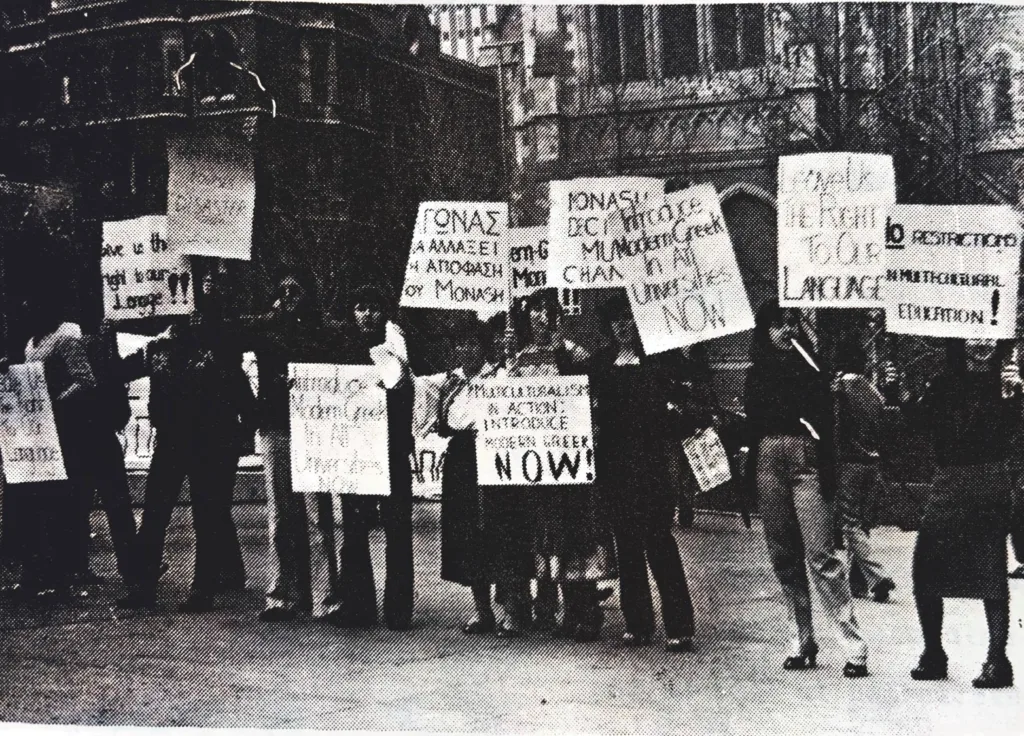
George Tziritis, from Melbourne University and a former student of the Academy, who sadly passed away only a few years ago, came to the Academy and urged students to participate in the protest. A large number of us did, lending our support against the proposed cuts to Modern Greek, demanding that the teaching of Greek is “a right not a privilege.”
In 1981, the year that I joined the club, George Tziritis was elected President, and my involvement was to continue until 1988. I was privileged to serve the association both as Treasurer and NUGAS (National Union of Greek Australian Students) representative. In my last year at Melbourne University, together with my good friend and fellow traveller Spiro Papadopoulos, we served on the electoral committee, which saw Nick Petroulias being elected as President for that year.
For the record, Mr Tziritis continued as president in 1982, followed by Pota Antonopoulos in 1983, Spiro Papadopoulos in 1984, Jenny Giatrakos in 1985, and Stan Lilimbakis together with Con Salpigtidis who served as co-chairpersons in 1986.
The 1980’s were generally an era of student activism and at-least during my years at the club, that activism was constantly reflected. Recognising the different needs of Greek students, we tried to offer a diversity of functions and activities. Admittedly, I belonged to a group of people who felt the need for the association to have not only a social role, but also a cultural and political one.
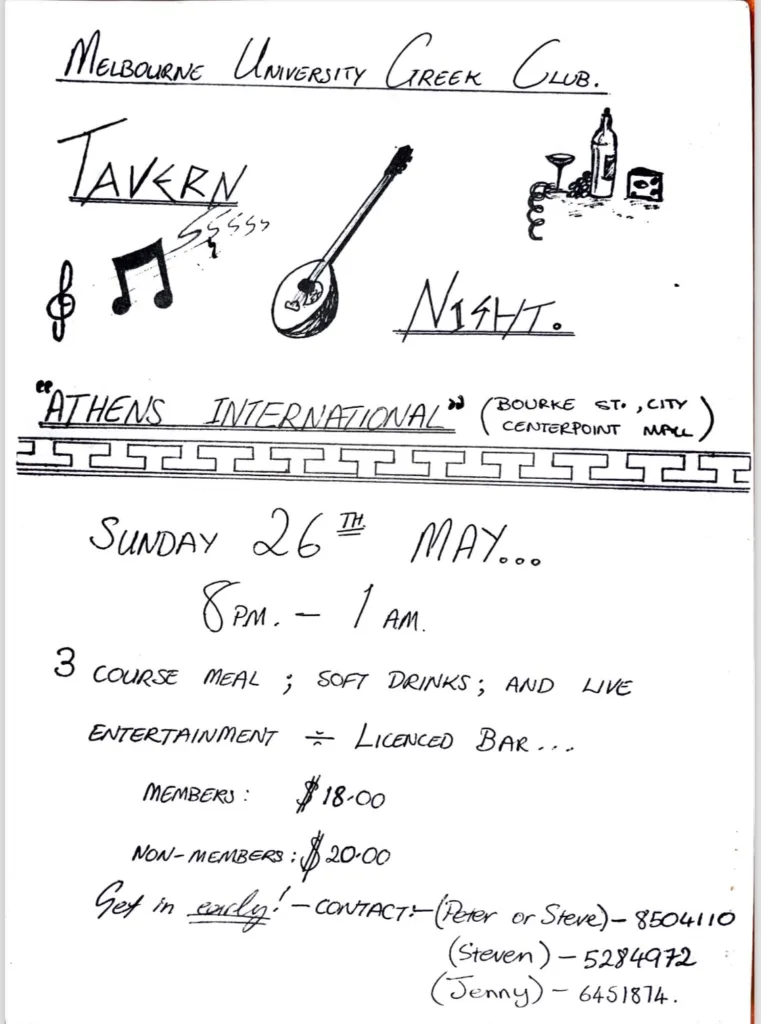
Looking back at those years I wish to recall just some of the type of activities we were involved in:
1. Numerous social functions including disco nights, film nights, tavern nights, the Annual Ball, and heaps of wine and cheese nights that were “the in thing” during the 80s.
2. Forums discussing such issues as the Greek Australian youth conflict, the role of NUGAS, and matters pertaining to university life.
3. Commemorating events such as the 1974 Turkish invasion of Cyprus and the Athens Polytechnic uprising in 1973.
4. Holding discussions with both State and Federal Ministers on issues concerning the greater Greek community. Talks involving Peter Spyker, then-State Minister for Ethnic Affairs, and discussions with Brian Howe, then-Federal minister of Social Security, come to mind.
5. Meetings with Greek Parliamentarians discussing issues such as army conscription and recognition of university degrees.
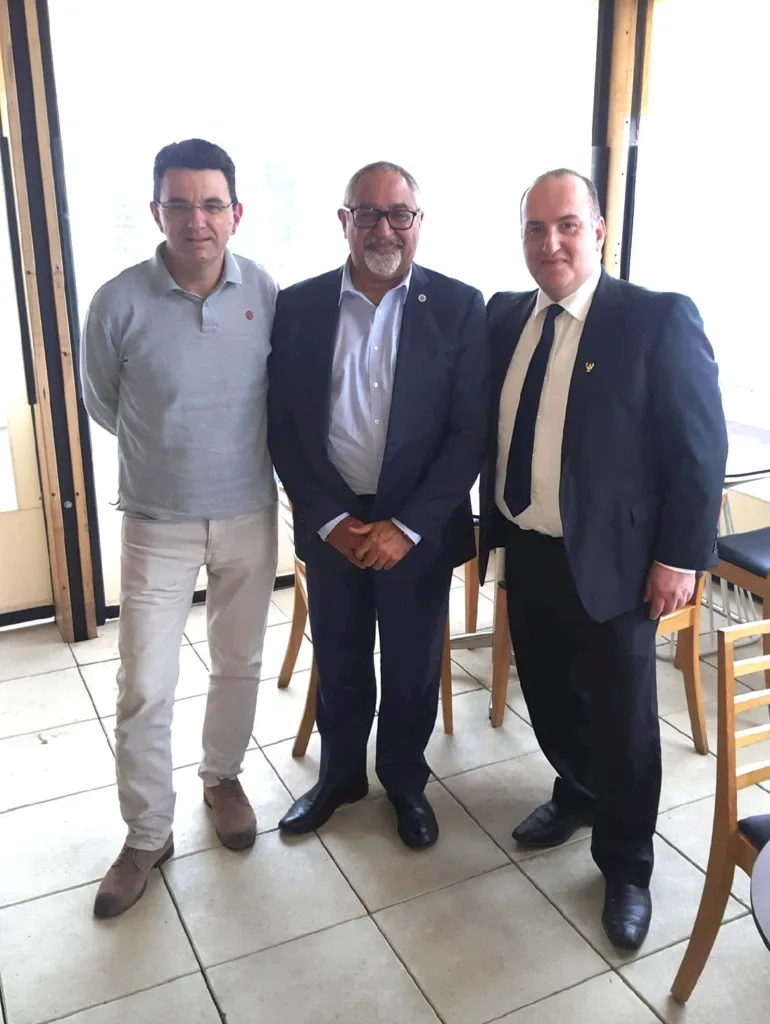
It would be remiss of me not to mention the close cooperation between our club and the Modern Greek Student Association – an association active in the 70s and 80s at the Melbourne University campus – with a proud history of promoting both Greek language and culture via a variety of functions and publications. But I’ll leave it to others who have a far better knowledge than me to write about the history of that association.
To conclude, may I once again thank the current committee of MUnGA for providing the opportunity for some of us “elders” to present our stories and to meet and greet the future leaders of our community. It is significant that these types of discussions that look at the history of our community continue to take place, as understanding the past helps us tremendously in explaining the present and planning for the future.
